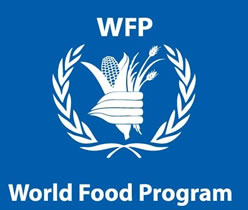 The United Nations World Food Programme (WFP) on Thursday welcomed a $1.5 million contribution from Japan, to be used to launch innovative nutrition projects in Ghana and Sierra Leone.
The United Nations World Food Programme (WFP) on Thursday welcomed a $1.5 million contribution from Japan, to be used to launch innovative nutrition projects in Ghana and Sierra Leone.
It is part of Japan and WFP’s expanded partnership to scale-up joint nutrition efforts to support governments in Africa, with a particular focus on pregnant and breastfeeding mothers and young children who are most at risk from under nutrition.
A statement signed by the WFP Ghana noted that the announcement of $1 million in support for Ghana and $500,000 for Sierra Leone was made during the visit to Ghana on August 7, by Dr Toshiko Abe, Japan’s Parliamentary Vice-Minister for Foreign Affairs.
During the visit Dr Abe met with Felix Gomez, WFP Deputy Regional Director for West Africa.
“WFP is extremely grateful for Japan’s strong commitment, leadership and investment in improving the nutrition of vulnerable mothers and children.
“Children’s physical and intellectual development can be irreversibly damaged if they do not receive proper nutrition during the first 1,000 days, from conception until a child reaches two years of age.
“Together with Japan, and working in close partnership with our host governments, we will proactively move to prevent under nutrition from taking root,” Gomez.
It said to determine suitable methods of collaboration on nutrition, WFP has initiated discussions with Ghana and Sierra Leone, as well as with UN agencies and several Japanese partners including the Japan International Cooperation Agency, non-governmental organisations, and the private sector.
It stated that in Sierra Leone, WFP is also partnering with the United Nations Population Fund on issues of health, well-being and nutritional status of adolescent girls and women particularly during pregnancy and breastfeeding.
The statement said this financial package follows the Fifth Tokyo International Conference on African Development held in Japan in June, when WFP Executive Director Ertharin Cousin and Parliamentary Vice-Minister Abe reaffirmed the importance of adequate nutrition for mothers and children, and agreed to launch nutrition programmes in Africa.
“An estimated 165 million children suffer from stunting globally, and in sub-Saharan Africa a staggering 40 per cent of children under the age of five are stunted.
“Although stunting rates in Ghana average 23 per cent, in food-insecure areas, such as in the Northern Region, the rates are as high as 37 per cent.
“In Sierra Leone, according to the 2010 SMART survey, the stunting rate among children under the age of five was 34.1 per cent nationally but exceeds the critical threshold of 40 per cent in four districts,” it said.
The statement observed that stunting is caused mainly by insufficient nutrition during the crucial first 1,000 days of life, which leads to a person’s physical and cognitive development being reduced, in turn diminishing their future productivity and earning capacity.
It said proper nutrition is therefore essential in nurturing the next generation and increasing the national incomes of developing countries.
WFP is the world’s largest humanitarian agency fighting hunger worldwide. Last year, WFP reached more than 97 million people in 80 countries.
Source: GNA























